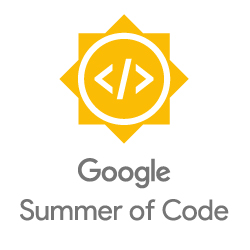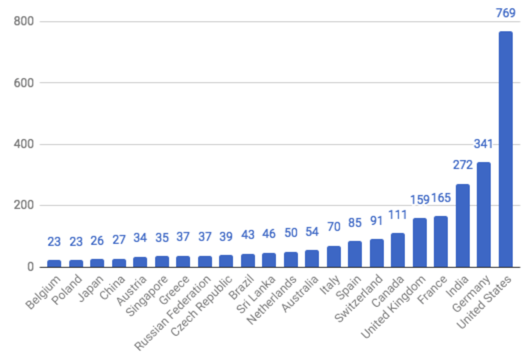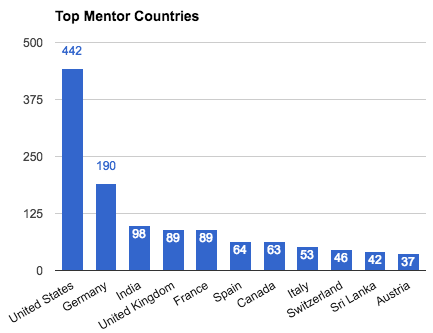For 17 years, GSoC has focused on bringing new open source contributors into OSS communities big and small. GSoC has brought over 18,000 university students from 112 countries together with over 17K mentors from 746 open source organizations.
At its heart, GSoC is a mentorship program where people interested in learning more about open source are welcomed into our open source communities by excited mentors ready to help them learn and grow as developers. The goal is to have these new contributors stay involved in open source communities long after their Google Summer of Code program is over.
Over the course of GSoC’s 17 years, open source has grown and evolved, and we’ve realized that the program needs to evolve as well. With that in mind, we have several major updates to the program coming in 2022, aimed at better meeting the needs of our open source communities and providing more flexibility to both projects and contributors so that people from all walks of life can find, join and contribute to great open source communities.
Expanding eligibility
Beginning in 2022, we are opening the program up to all newcomers of open source that are 18 years and older. The program will no longer be solely focused on university students or recent graduates. We realize there are many folks that could benefit from the GSoC program that are at various stages of their career, recent career changers, self-taught, those returning to the workforce, etc. so we wanted to allow these folks the opportunity to participate in GSoC.We expect many students to continue applying to the program (which we encourage!), yet we wanted to provide excited individuals who want to get into open source—but weren’t sure how to get started or whether open source communities would welcome their newbie contributions—with a place to start.
Many people can benefit from mentorship programs like GSoC and we want to welcome more folks into open source.
Multiple Sizes of Projects
This year we introduced the concept of a medium sized project in response to the many distractions folks were dealing with during the pandemic. This adjustment was beneficial for many participants and organizations but we also heard feedback that the larger, more complex projects were a better fit for others. In the spirit of flexibility, we are going to support both medium sized projects (~175 hours) and large projects (~350 hours) in 2022.One of our goals is to find ways to get more people from different backgrounds into open source which means meeting people where they are at and understanding that not everyone can devote an entire summer to coding.
Increased Flexibility of Timing for Projects
For 2022, we are allowing for considerable flexibility in the timing for the program. You can spread the project out over a longer period of time and you can even switch to a longer timeframe mid-program if life happens. Rather than a mandatory 12-week program that runs from June – August with everyone required to finish their projects by the end of the 12th week, we are opening it up so mentors and their GSoC Contributors can decide together if they want to extend the deadline for the project up to 22 weeks.Interested in Applying to GSoC?
We will announce the GSoC 2022 program timeline soon.Open Source Organizations
Does your open source project want to learn more about how to apply to be a mentoring organization? This is a mentorship program focused on welcoming new contributors into your community and helping them learn best practices that will help them be long term OSS contributors. A key factor is having plenty of mentors excited about teaching newcomers about open source.Read the mentor guide, to learn more about what it means to be a mentor organization, how to prepare your community, creating appropriate project ideas (175 hour and 350 hour projects), and tips for preparing your application.
Want to be a GSoC Contributor?
Are you a potential GSoC Contributor interested in learning how to prepare for the 2022 GSoC program? It’s never too early to start thinking about your proposal or about what type of open source organization you may want to work with. Read through the student/contributor guide for important tips on preparing your proposal and what to consider if you wish to apply for the program in 2022. You can also get inspired by checking out the 199 organizations that participated in Google Summer of Code 2021, as well as the projects that students worked on.We encourage you to explore other resources and you can learn more on the program website.
Please spread the word to your friends as we hope these updates to the program will help more excited folks apply to be GSoC Contributors and mentoring organizations in GSoC 2022!












